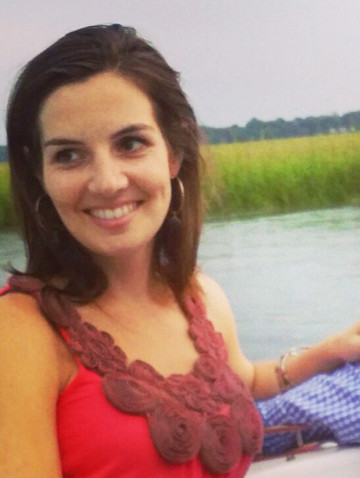K
“I knew I wanted to work in geriatrics. My mum was a geriatric nurse so I would go to her nursing home after school every day when I was growing up and spend time with the patients. I also have social worker friends and have always admired what they do.”
However, Katherine’s journey into social work was an unorthodox one involving a three o’clock in the morning epiphany while working in the nation’s capital as a local television journalist. Previously majoring in journalism from College of Charleston, Katherine spent six years carving out a successful career in print and television news both locally and in Washington DC.
“I produced on election nights and produced a documentary on the twentieth anniversary of Hurricane Hugo. I got to talk to survivors and let them tell their story about hiding on the roof when the storm hit. They showed me where the shingles are still broken from climbing onto the roof in the middle of the hurricane. And I loved hearing the stories. But I slowly came to realise if I’m going to give something all of my time, all of my energy, all of my creativity then I want it to be something that makes more of a difference in the world. So I woke up at three o’clock in the morning and said I want to be a social worker.”
Katherine attributes her passion for hearing stories firsthand is what attracted her to hospice work. While providing social support to people who really need it, she gets to hear the stories of veterans who have been through so much and learnt so many lessons in life.
“They’ve lived sixty, seventy, eighty years on this earth and learnt all of these lessons and met all of these people and had so much love and so much pain, and at the end of their life their circle shrinks down from that huge system of people to a very small circle. And it’s blessing to me to be able to be in that circle.”
Katherine sees her journalistic background ideally suited to preserving the stories of people who have no one else to tell them to, and at the same time hopefully change the antiquated stigma of hospice in South Carolina.
”When I tell people that I’m going to be a hospice social worker I can see them recoil because that’s how much of a negative connotation that word can have. Hospice is not a magical place where people die. It is a delivery of health care that focuses on comfort as opposed to aggressive curative care. It takes a really bad thing and makes it a little bit easier. That sounds great to me. But that’s not what people hear. They hear it’s a place where people go to die because the doctors don’t want to deal with them anymore.”
The modesty and dedication of palliative health care workers are a regular source of inspiration in our local community. So it’s not surprising that while facing these challenges in a new career as a social worker Katherine says she feels almost selfish for wanting to do this work because she loves it so much.
Photographs courtesy of Katherine DuPre








